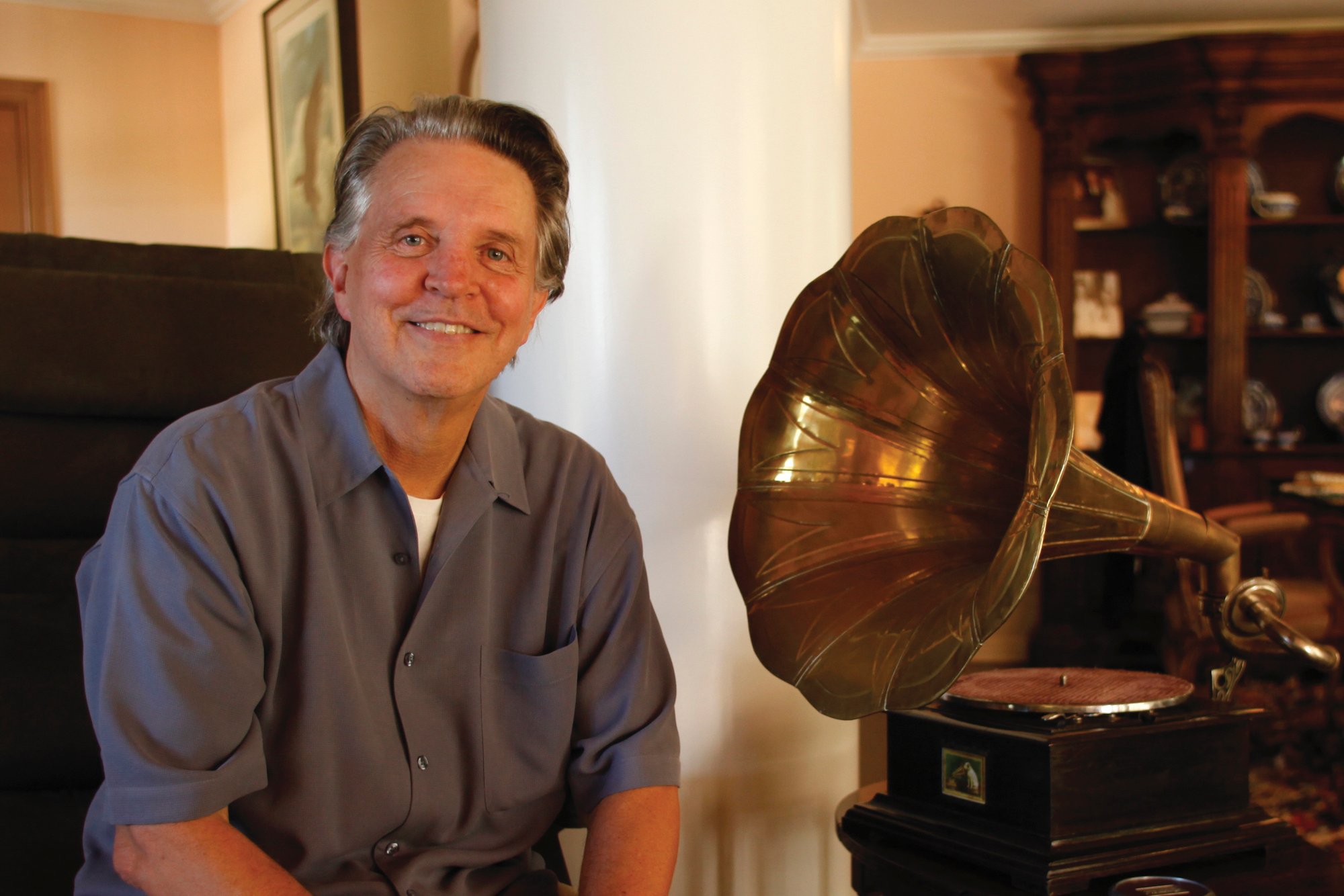The “My Music Row Story” weekly column features notable members of the Nashville music industry selected by the MusicRow editorial team. These individuals serve in key roles that help advance and promote the success of our industry. This column spotlights the invaluable people that keep the wheels rolling and the music playing.
Mike Curb is the Chairman & Owner of Curb Records and Curb | Word Entertainment as well as the former Acting Governor and Lieutenant Governor of California, a Grammy Award-winning record producer, a Billboard Record Producer of the Year and a BMI multi-award-winning songwriter.
The industry veteran continues to preside over Curb Records, the independent record company he founded 60 years ago, which has been influential in the careers of Tim McGraw, Hank Williams, Jr., Rodney Atkins, Lee Brice, LeAnn Rimes, The Judds, Dylan Scott, Sawyer Brown, For King & Country, Wyn Starks, Wynonna Judd, Lyle Lovett, Big Daddy Weave, Natalie Grant, Jo Dee Messina, Hannah Ellis, Mo Pitney, Hal Ketchum and Desert Rose Band, among others. The company has achieved 435 No. 1 hits, garnered over 1,500 top 10 records and charted over 4,500 total records.
In addition to its rich musical legacy, philanthropy remains a longstanding value of Curb and the company. Over the years, Curb Records and the Mike Curb Foundation have provided grants and gifts totaling more than $200 million in support of education, historic preservation and homelessness.
Programs at more than a dozen colleges nationwide are funded through the generosity of Curb, shaping the next generation of musicians, songwriters, producers and music business leaders with renowned programs at Nashville’s own Belmont University and Vanderbilt University.
MusicRow: I know you started Curb Records in Los Angeles. Is that where you grew up?
Yes. We lived in the Compton and Watts area, and I went all the way through public school in California.
What were your interests as a kid?
Music and motorsports.
Did you always know you wanted to work in music?
I just knew I loved music. I learned to play guitar, piano and a little bit of violin. I was never great at that, but I was fairly good and always loved music. I loved to buy the little 45 RPM records—I think I have nearly every single one that ever hit the charts in my collection. I was interested in songwriting and producing.
Tell me about those early years of learning to write and produce.
I went to California State University, Northridge, which is a public university in San Bernardino Valley where I grew up. One of the Deans allowed me to use the music room where I wrote a song called “You Meet The Nicest People On A Honda.” That later became the theme for Honda.
I also wrote a song called “Hot Wheels,” which became the theme for Hot Wheels, and I wrote the theme for Chevrolet, “On The Move With Chevrolet.” Then I started composing music for movies.
Wow! That success is what helped you start Curb Records, correct?
Yes, I started the label during my first year at Cal State. The songs for Honda, Hot Wheels and Chevrolet went on to become successful. Then I had enough money to bring in other writers. The first 10 years of my company, we did the music for 50 to 60 movies. As time went on, we got to score better and better movies. That’s how we started.
You built that into a bona fide record label that had hits with pop, rock, country and Christian artists in the ’60s and ’70s. It sounds like you were multi-genre before it was cool?
I’m a fan of music in general. When you look at ’70s rock, there’s a lot in common with the country music of the ’90s and even the country music of today. In California, we really didn’t have the delineation between pop, country and R&B.
After many years of success, you ended up having a career in politics. How did that happen?
I had been in business a number of years and was still young, so I was attending an event for Junior Achievement, a group that gives underprivileged students an opportunity to learn about business, at an early age. I was there talking a little bit about how I started my company.
Ronald Reagan, who was just finishing his term as Governor, was the next speaker, so he heard me speak. They had a lunch afterwards, and I was sitting across from him at a table of probably eight to 10 people. He mentioned that he was planning on running for President and asked me if I wanted to be involved in any way. I told him I hadn’t even made up my mind if I was a Republican or a Democrat. [Laughs]
We had a lot in common. He was an actor, and involved in the entertainment industry, so he cared about film music and knew what I had done with film music. We had a great talk and he asked me to get involved with his campaign out in California. I ended up becoming the Co-Chairman for [the campaign in the state of] California in the mid-70s, and then later, he asked me to be the National Co-Chairman of his campaign for President in 1980. Along the way, I put Chairpersons in all 58 of our great counties in California.
Then you became Lieutenant Governor of California.
A lot of people approached me about running for Lieutenant Governor. In California, the Lieutenant Governor acts as Governor when the acting Governor is out of state. California’s then-Governor Jerry Brown, who took over after Reagan, was also running for President, so he was traveling a lot. I served 240 official days as Governor—and almost a year when you count weekends. [Laughs] I’m glad I did it, but I sure was anxious to get back in the music business.
After serving as Lieutenant Governor, Reagan asked me to come to Washington for a while and I served as Chairman of the RNFC and the Presidential Trust. He appointed me to the Trade Commissions Committee, and I was his appointee to the USO Board. There I had the opportunity to work on a lot of the immigration issues. I was part of the committee that worked with him on the Simpson-Mazzoli Act, which is probably the last bill we ever had that created a pathway for citizenship.
How did you change lanes back into music after that?
First of all, I had a very outstanding label President at the time, Dick Whitehouse. He kept the company going while I was in government.
After I came back from Washington, I jumped back into the record business. We were still in California, but we focused quite a bit on Nashville artists. We signed The Judds, Sawyer Brown, Hank Williams Jr., Wynonna Judd, Bellamy Brothers, Desert Rose Band and Lyle Lovett. We focused on that in the ’80s. We would do co-ventures with Nashville-based companies, because we didn’t have the infrastructure [to promote country records in-house].
In late ’89, Joe Smith had just become President of Capitol. He had been President of Warner back in the ’70s, and we had had a very successful relationship. We had a Curb/Warner co-venture and had hits like “You Light Up My Life” by Debby Boone, “December, 1963 (Oh, What A Night)” by The Four Seasons, “Let Your Love Flow” by the Bellamy Brothers, “Da Doo Ron Ron” by Shaun Cassidy and “Kiss You All Over” with Exile.
When Joe moved to Capitol in the late ’80s, he asked us to get out of our joint venture and bring everything to Capitol. In exchange for that, he gave us access to the deep catalog of Capitol. I loved the history of Capitol, so they made an agreement with me that I would bring my artists there and that would allow me to put together packages on the Curb label. They got their licensing and distribution fee, and we put out over a hundred albums of material from classic artists by really focusing on the deep catalog. The whole relationship was successful.
Our company signed new artists like Hal Ketchum, who had a big hit with “Small Town Saturday Night.” Sawyer Brown came back to the Curb label and had “Some Girls Do.” Wynonna Judd had her five-million-selling album, and then of course we signed Tim McGraw, Jo Dee Messina and LeAnn Rimes. We were doing so well that we decided to move to Nashville in 1992.
What was Nashville like when you got here?
I came to Nashville many times before we moved. I loved to just walk around, and would walk by all the studios—RCA Studio A, RCA Studio B, the Quonset Hut and Columbia Studio A. I dreamed about getting into those studios.
When we got here, Nashville was starting to grow, but everything was much calmer. During the 32 years we’ve been here, Nashville has exploded into the most exciting city in the world. We’ve bought 12 properties on Music Row and restored them. We bought RCA Studio B and entered into an agreement with the Country Music Hall of Fame. Last year, they brought 100,000 people on those buses [to tour it]. They’ve done a fabulous job.
We’re continuing to work to [preserve and] build out Music Row. We’ve got the Glen Campbell memorabilia at the Musicians Hall of Fame, and the Johnny Cash memorabilia that we purchased when his museum closed. In Memphis, we bought Elvis Presley‘s first home and we’ve developed that as a laboratory for our Mike Curb Institute for Music at Rhodes College. We’re working on building out Beale Street with the Memphis Rock ‘n’ Soul Museum and the Memphis Music Hall of Fame. We’re doing all kinds of positive things every day. The days sometimes are not long enough for us to get everything done. [Laughs]
Speaking of expanding, let’s talk about the Mike Curb College at Belmont, which has grown exponentially. How did that start?
Donna Hilley was a very good friend of mine. She was running Sony/ATV and introduced me to Bill Troutt, who was the President of Belmont. They already had a music school there, but Bill had a vision for what the music business college could be in Nashville. Bob Mulloy and Cecil Scaife had already started a music business program back in the ’70s, but it was very small. Bill just had a tremendous vision for it, so we started working on the program in the mid-90s. 10 years later, it became the Mike Curb College of Entertainment & Music Business when Bob Fisher took over. We acquired Ocean Way Studio for the college a few years later, and then we started adding programs and developing spaces.
It’s clear that giving back is essential to you. Including what you’ve done for Belmont, the Mike Curb Foundation has given over $200 million in grants and gifts to various causes. Why is it such a focus for you?
I was very inspired. My grandmother was Hispanic, and was born right on the border of Mexico and Texas. She lost her three sisters and her father during the Spanish Flu pandemic. After suffering through that, she somehow, with no money, was able to put herself through college. She married a soldier and he ran a YMCA. She became a translator and spent her life in her church helping people who were oppressed and struggling. Her name was Eloisa Salazar. She inspired me to want to give back.
I’m standing on the shoulders of great people who were in public service, but they never received any financial rewards for their work. So when my company started generating profits, we decided to put half of it into our foundation each year to benefit various charities.
The most exciting thing that we’ve been really focused on for the last decade has been homelessness. We made an agreement with Glenn Cranfield and the Nashville Rescue Mission, and we bought 20,000 meals to feed the homeless during the pandemic. We also started building relationships with Room In the Inn, Matthew 25, the Safe Haven Family Shelter and Second Harvest Food Bank, but we got very close to the Rescue Mission downtown and their goal of building the Women’s Mission. My wife and I became the Co-Chairs of the program to build the Women’s Mission downtown that just opened. The entrance area is named after my grandmother. We also have the refugee center here in Nashville, which is also named after my grandmother.
That is amazing. When you look back on everything that you’ve created, what are you most proud of?
I have to say the work of our foundation. That is something that I’m extremely proud of because we’re helping the homeless, and we’re also helping students through our college. We’ve been able to do positive things for the community with the restoration of Music Row and Beale Street in Memphis. I’m also very proud of Curb Records, our artists and our catalog.
What are your hopes for the next 60 years of Curb Records?
I hope it’s still around. [Laughs] We haven’t sold our company, and we haven’t entered into any distribution arrangements that would lock us into something we wouldn’t want. Basically, we are extremely independent. We’ve set our company up in a trust to go on forever, and we have great future trustees who will continue it after my wife and I are gone. Please write nice things on our 120th anniversary!















